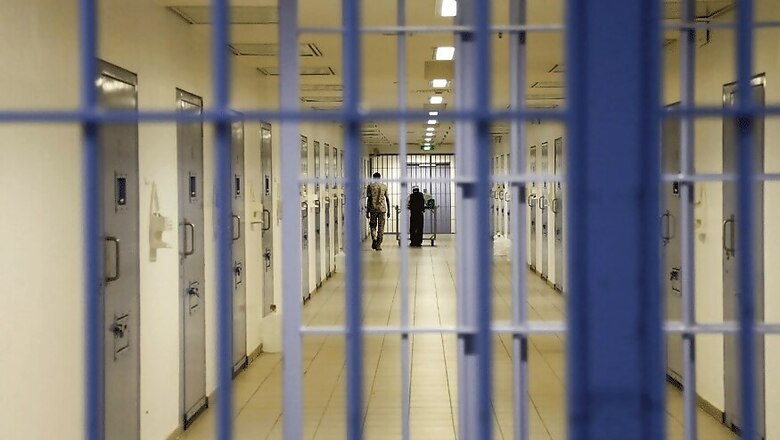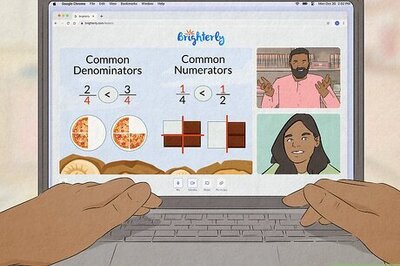
views
Prisoners and undertrials are being released on emergency parole and bail only because the Supreme Court felt the need to decongest prisons amid the COVID-19 pandemic and the same is not a matter of right for prisoners, the Bombay High Court said on Tuesday.
A division bench of Chief Justice Dipankar Datta and Justice Madhav Jamdar was hearing two petitions filed by one Preeti Kartick Prasad and a city-based NGO National Alliance for People's Movement.
The petitions challenge a decision taken by a state-appointed high-powered committee by which inmates convicted or booked under special statutes or under serious offences are not entitled to be released on emergency parole or bail.
The committee has said such prisoners will have to approach concerned courts seeking bail. The committee was set up following an order passed by the Supreme Court calling for decongestion of prisons across the country at the beginning of the COVID-19 outbreak.
The committee had said all prisoners and undertrials convicted or facing trial in offences that are punishable by jail of up to seven years are entitled to be released on emergency or temporary parole and bail.
The petitioners' in their plea argued the committee's decision was discriminatory, and that such classification of prisoners amounts to infringement of their fundamental rights.
The bench on Tuesday, however, said if the committee has decided that prisoners, convicted or facing trial under a particular offence, cannot be released on emergency bail or parole, then the court ought not to interfere as there is no glaring infringement of fundamental rights.
Chief Justice Datta cited the example of slain gangster Vikas Dubey from Uttar Pradesh and said he (Dubey) was released on parole. "The Chief Justice of India on Monday pointed out the failure of the institution in granting parole to such a prisoner," he said.
"Just because Supreme Court has ordered decongestion does not mean a prisoner is entitled to be released on bail or parole as a matter of right. There is no right. The entire issue has been left to the discretion of the high-powered committee," the court said.
"If the committee had said prisoners of a particular caste, community or even complexion can be released, then yes there has been a violation of fundamental rights. But right now, there is no such infringement," the court added.
Advocate SB Talekar, appearing for the NGO, said the case of Vikas Dubey cannot be taken as an example here and the high court also needs to consider the fact that the jails in Maharashtra are above over-crowding.
To this, the court said there has to be a balanced approach and hence the committee decided that courts shall decide bail pleas of those convicted or booked under special statutes or for serious crimes. The court will continue hearing the pleas on Friday.














Comments
0 comment